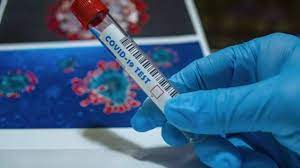
New study sheds light on the complex genetics of autism among people of East African heritage in the US
Researchers at UT Southwestern Medical Centre found hundreds of genetic variations linked to autism spectrum disorder (ASD) in East African households, which had a significantly greater frequency of the neurodevelopmental illness than other communities globally.
The study, published in Cell Genomics, is the first to look into the genetics of ASD in an African community, which the authors say is a vital step towards reducing racial and ethnic health disparities in this illness.
“The overwhelming majority of all genetic ASD studies done to date have focused on exclusively white populations with European ancestry,” Dr Maria Chahrour, an associate professor of Neuroscience and Psychiatry at UTSW in the Eugene McDermott Center for Human Growth and Development said.
“There are growing efforts in the field to look at the genetics of ASD in African populations. We are happy and proud to be the first to publish on this important topic,” she added.
According to data from the Autism and Developmental Disabilities Monitoring Network, an estimated 1 in 36 8-year-olds in the United States was supposed to have ASD in 2020.
According to Dr Chahrour, who is also affiliated with the Centre for the Genetics of Host Defence and the Peter O'Donnell Jr. Brain Institute at UTSW, a higher incidence among persons of East African heritage is assumed to have genetic roots although the particular explanation has not been identified.
Dr Chahrour collaborated on the investigation with Leah Seyoum-Tesfa, RN, M.Ed., an Irving, Texas-based nurse who formed Reaching Families Advocacy and Support Group, which assists East African immigrants whose children have developmental disorders such as ASD.
The researchers enlisted the help of 33 East African immigrant households with at least one autistic child. Ethiopian, Eritrean, or both parents are present, and one family is Kenyan. They are all from the Dallas-Fort Worth area.
The researchers performed whole genome sequencing on blood samples donated by 129 family members, including 36 children with ASD. They then searched for variations in individual genes or larger sections of chromosomes, called loci, that were specific to the children with ASD.
In these research participants, their analysis revealed more than 2.1 million genetic variations that had never been reported in other databases.
The researchers found variations in the protein-coding part of 12 genes previously linked to ASD in past studies, as well as the protein-coding component of eight genes previously linked to other neurodevelopmental disorders in the 36 children.
They further found 12 variations in noncoding areas of the genome that are expected to influence genes linked to ASD and other neurodevelopmental disorders.
According to Dr Chahrour, in addition, the researchers discovered variants that affect other genes that had never before been associated with ASD.
“Future studies will be necessary to determine whether these variants are causative,” she said.
She and her colleagues used admixture mapping to track the 33 East African families back to two different ancestral populations, the closest relatives of whom are Kenyans and Italians. The researchers linked the ASD loci to sections of the DNA acquired from African ancestors but not from Europeans.
Although these findings are preliminary in terms of ASD genetics in East Africans, Dr Chahrour said that she expects they will aid in the interpretation of genetic tests, which could assist to speed up the diagnostic process, which has a waiting period of over one year in many U.S. centres qualified to diagnose ASD.
“The earlier that children with ASD receive behavioural, speech, and other support services, the more effective these services are. However, research has shown that minority and underserved populations often don’t have access to earlier diagnosis and services,” Dr Chahrour said.
“We are contributing to bridging this gap as genetic findings make their way into the clinic. The findings mark an important milestone in our quest for a deeper understanding of the complex genetics of ASD,” she added.